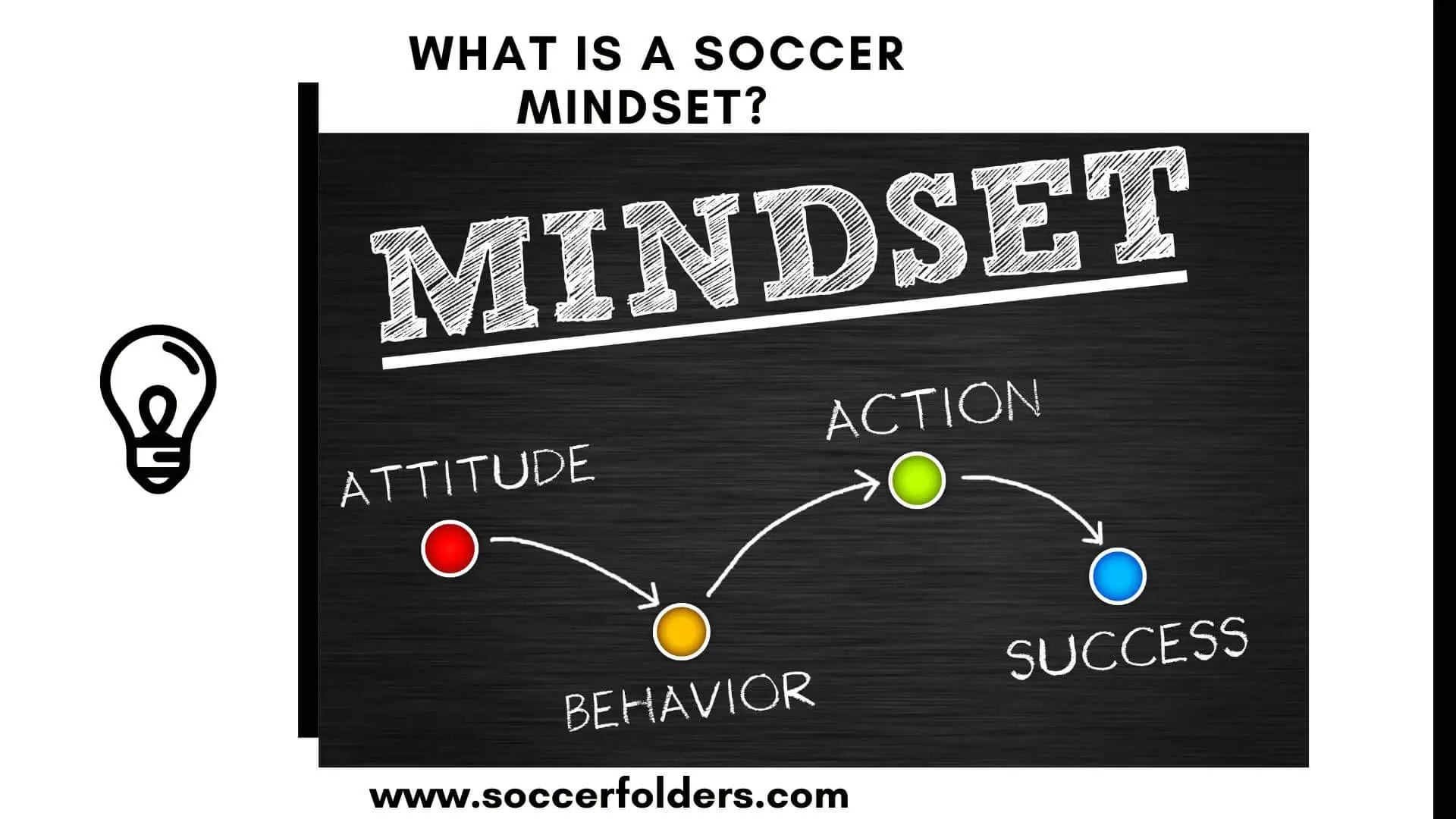What is a soccer mindset? Soccer requires not just physical strength and skill, but also a strong mental approach.
To succeed on the field, players need to cultivate a soccer mindset that will help them perform at their best, regardless of the situation.
In this article, you will learn what a soccer mindset is, and how to improve it to be a better player on the field.
Let’s get started.
What is a Soccer Mindset?
A soccer mindset refers to the mental approach, attitude, and state of mind of a soccer player, which influences their performance and decision-making on the field. This includes characteristics such as focus, determination, resilience, and adaptability, which are essential for success in the sport.
The soccer mindset helps players stay composed, confident, and proactive in high-pressure situations, and allows them to work well as a team to achieve their goals.
Characteristics of a Strong Soccer Mindset
- Focus: A player with a strong soccer mindset can stay focused on their goals, even in the most intense and distracting of circumstances. They can tune out distractions and concentrate on the task at hand, which is critical for success on the field.
- Determination: Determined players are those who refuse to give up, no matter what the odds. They are driven to succeed and are willing to work hard and make sacrifices to achieve their goals.
- Resilience: Resilient players can bounce back from setbacks and setbacks and keep pushing forward. They can keep their spirits up and maintain a positive attitude, even in the face of adversity.
- Adaptability: Adaptable players can adjust their strategies and techniques as the game evolves. They are able to make quick decisions, change course, and respond to new challenges with ease.
Developing a Soccer Mindset
- Visualization: Visualizing your success before it happens is a powerful way to develop a strong soccer mindset. By imagining yourself making the right moves and achieving your goals, you can increase your confidence and prepare yourself for success.
- Practice: Practicing regularly is essential for developing and refining your skills on the field. But it’s also important to practice your mental game. This might include practising visualization techniques, as well as developing a pre-game routine that helps you stay focused and calm.
- Positive self-talk: Positive self-talk can help you maintain a strong and confident mindset. Players should focus on their strengths and accomplishments, and avoid negative self-talk that can erode their confidence.
- Seek out role models: Looking to successful players for inspiration can help you develop the right mindset for success. By observing how successful players handle pressure, overcome obstacles, and stay focused, you can learn valuable lessons that will help you on your journey.
The Impact of a Strong Soccer Mindset
A strong soccer mindset can have a profound impact on a player’s performance.
Players with a strong mindset are more confident, focused, and determined, and are better able to stay composed and make the right decisions in high-pressure situations.
This can lead to greater success on the field and can help players reach their full potential as athletes.
How can I Improve my Mindset in Soccer?

Improving your mindset in soccer requires a combination of self-awareness, mental preparation, and consistent effort. Here are a few steps that can help you improve your mindset on the field:
- Practice visualization and positive self-talk: Visualizing your success and speaking positively to yourself can help increase your confidence and reduce anxiety on the field.
- Set goals: Setting clear and achievable goals can help you stay focused and motivated on the field.
- Engage in mental preparation: Developing a pre-game routine that includes visualization, deep breathing, and positive self-talk can help you stay calm and focused during games.
- Practice mindfulness: Mindfulness techniques such as meditation and deep breathing can help you stay centred and focused on the present moment, even in high-pressure situations.
- Seek feedback and coaching: Working with a coach or mentor can help you identify areas for improvement and provide guidance on how to develop a stronger mindset.
- Learn from past experiences: Reflecting on past experiences, both positive and negative, can help you learn and grow as a player.
- Maintain a healthy lifestyle: Taking care of your physical and emotional health can have a positive impact on your overall mindset and performance on the field.
By implementing these steps, you can work on improving your mindset in soccer and perform at your best on the field.
The Importance of a Team Mindset in Soccer, Including the Impact of a Positive Team Dynamic on Performance
A team mindset is critical in soccer as the sport requires coordination and collaboration between players.
A positive team dynamic, where players support and trust each other, can significantly impact performance.
When players are working together towards a common goal, they are able to play with more confidence and energy, which can result in improved teamwork and communication on the field.
On the other hand, negative team dynamics can lead to conflicts, lack of trust, and poor communication, which can negatively impact performance.
In short, having a strong and positive team mindset can be a key factor in the success of a soccer team.
Final Word
The soccer mindset is a critical component of success on the field.
By developing a strong mental approach, you can unlock your full potential and achieve your goals, no matter what the circumstances.
So start working on your soccer mindset today, and see the difference it can make in your performance.



